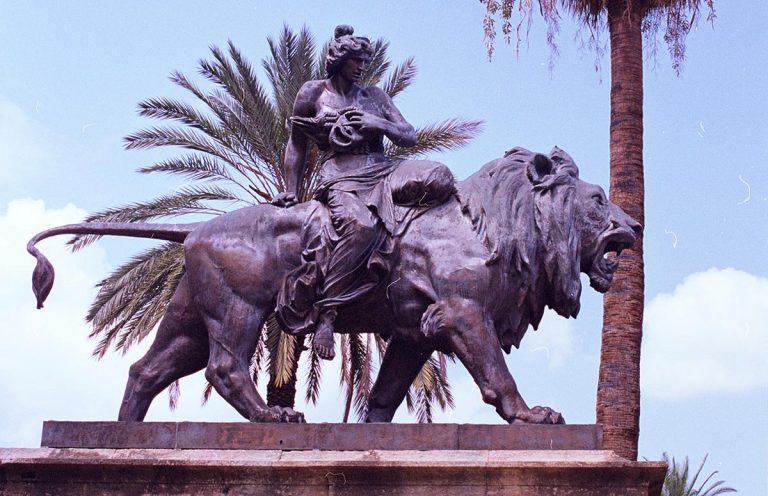Zoophilia: is it legal, is it sexual assault, and where does it come from?
What is zoophilia?
Zoophilia, not to be confused with bestiality, is the sexual attraction of a human toward a non-human animal, which may involve the experience of sexual fantasies about the animal and sometimes lead to bestiality, which is the pursuit of real sexual contact with an animal.
In many countries, sex between humans and animals is illegal. The simple act of having an erotic fixation on animals is frowned upon in most cultures, yet several ancient authors purported to document it as a regular and accepted practice.
Where does zoophilia come from?
Zoophilia (along with bestiality) actually began in the prehistoric era, where depictions of humans and animals in a sexual context have appeared a few times in European rock art. After that, bestiality remained a recurrent theme in mythology and folklore through the classical period and into the Middle Ages.
The explicit legal prohibition of human sexual contact with animals is a legacy of the Abrahamic religions—the Hebrew Bible imposes the death penalty on both the person and animal involved in an act of bestiality. There actually are several examples of people and animals who were executed for committing bestiality in medieval Europe. When the Age of Enlightenment came around, bestiality along with other sexual acts became known as “crimes against nature” and usually remained a capital crime in most countries.
Several Greek myths include Zeus seducing or abducting mortals while in the form of an animal. One of those legends includes actual copulation between Leda and Zeus in his animal form. Depictions of this act became a popular motif in classicising Renaissance art, contributing to a lasting prominence in Western culture.
Meanwhile, Herodotus alleged that Egyptian women engaged in sexual relations with goats for religious and magical purposes. Conversely, Plutarch wrote in his Discourse on the Reason of Beasts that the Greeks committed “very frequently and in many places great outrages, disorders and scandals against nature, in the matter of this pleasure of love; for there are men who have loved she-goats, sows and mares.”
In the Middle Ages’ Church-oriented culture, zoosexual activity was met with execution—typically burning for the human and death to the animals involved either the same way or by hanging. Of course, along with real stories came many fictitious accounts.
For example, although thousands of female witches were accused of having sex with animals, usually said to be the Devil in animal form, court records available in Europe and the US dating back to the 14th century and continuing into the 20th century nearly always show males, rather than females, as the human parties in court cases. Would you look at that…
Fast-forward to a 19th-century France, where it was known that bestiality became an organised practice. At the time of Napoleon III, bestiality was said to have been one of the allied activities of the Society for the Advancement of Sodomy, which met regularly in the allée des Veuves for a little bit of fun.
Up until the 1950s, zoophilia was exempt from punishment in over 80 per cent of European countries.
Why is bestiality illegal?
I mean, it is pretty clear why it is seen as unethical. While other arguments used to justify this include religious beliefs, bestiality is first and foremost an act that non-human animals cannot give consent to. In other words, sex with animals is inherently abusive.
Although both zoophilia and bestiality remain illegal in most countries, the internet has, as with many other things, provided a connective platform for the zoophile community, which has lobbied for the recognition of zoophilia or zoosexuality as an alternative sexuality, and advocated for the legalisation of bestiality.
In 2003, the Sexual Offences Act 2003 lowered the criminal penalty of bestiality in the UK from life in prison to two years in prison. In 2006, Denmark’s Council for Animal Ethics said there was no need to ban bestiality unless it took place in pornographic films or sex shows. Only one of the 10 members of the council, set up by the Danish Justice Ministry to establish and uphold animal ethics, wanted bestiality expressly prohibited. The other members said current laws provided enough animal protection.
Denmark only outlawed bestiality in 2015 after all parties except the Liberal Alliance voted in support of a ban, leaving Hungary, Finland and Romania as the only European Union countries without bans on bestiality. During the 21st century, zoophilia was re-criminalised in most US states as well as other countries all around the world.
When Germany passed a law banning zoophilia in 2013, the zoophile community protested and filed a lawsuit against the government saying the law violated their rights. A few months later, ZETA, a German zoophile-rights group, put together a march that would make its way through the street of Berlin. Zoophilia remains illegal in Germany.






